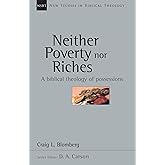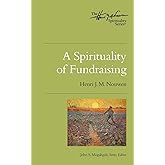
Amazon Prime Free Trial
FREE Delivery is available to Prime members. To join, select "Try Amazon Prime and start saving today with FREE Delivery" below the Add to Cart button and confirm your Prime free trial.
Amazon Prime members enjoy:- Cardmembers earn 5% Back at Amazon.com with a Prime Credit Card.
- Unlimited FREE Prime delivery
- Streaming of thousands of movies and TV shows with limited ads on Prime Video.
- A Kindle book to borrow for free each month - with no due dates
- Listen to over 2 million songs and hundreds of playlists
Important: Your credit card will NOT be charged when you start your free trial or if you cancel during the trial period. If you're happy with Amazon Prime, do nothing. At the end of the free trial, your membership will automatically upgrade to a monthly membership.
Buy new:
-13% $21.67$21.67
Ships from: Amazon Sold by: SBA Book Store
Save with Used - Good
$19.99$19.99
Ships from: Amazon Sold by: Tentmaker Limited

Download the free Kindle app and start reading Kindle books instantly on your smartphone, tablet, or computer - no Kindle device required.
Read instantly on your browser with Kindle for Web.
Using your mobile phone camera - scan the code below and download the Kindle app.

Christians in an Age of Wealth: A Biblical Theology of Stewardship (Biblical Theology for Life) Paperback – November 26, 2013
Purchase options and add-ons
What does the Bible say about money, material possessions, and stewardship?
In Christians in an Age of Wealth, Craig Blomberg addresses tough questions about the place and purpose of wealth and material possessions in a Christian's life. He points to the goodness of wealth, as God originally designed it, but also surveys the Bible's many warnings against making an idol out of money.
Taking a close exegetical look at this topic as it’s discussed in Scripture, Blomberg answers the toughest questions about Christianity and wealth:
- Is there any one key to keeping possessions in their proper, God-intended perspective?
- Are there limits on how rich we should become or on how poor we should allow others to get?
- What does a truly Christian economic system look like?
- How does the Bible's teaching on wealth fit into the gospel?
Blomberg expounds upon how the sharing of goods and possessions is the key safeguard against both greed and covetousness. He expands on the concept of giving generously, even sacrificially, to those who are needier, demonstrating how Christians can participate in God's original good design for abundance and demonstrate the world-altering gospel of Christ.
____________
Part of the Biblical Theology for Life series, this practical and challenging book will help you and your church ground your worldly possessions on the solid foundation of biblical understanding and reflection.
- Print length272 pages
- LanguageEnglish
- PublisherZondervan Academic
- Publication dateNovember 26, 2013
- Dimensions7.3 x 0.8 x 9.35 inches
- ISBN-10031031898X
- ISBN-13978-0310318989
Book recommendations, author interviews, editors' picks, and more. Read it now.
Frequently bought together

Customers who viewed this item also viewed
From the brand

Scroll right for more.
-
Shop Zondervan Academic
-
New Releases
-

Zondervan Academic serves the needs of Christian scholars, pastors, and students. Since 1931, we have been privileged to partner with the scholarly community to develop Christ-honoring resources in service of the academy and the church worldwide.
Together we produce works in various areas of biblical-theological studies that exhibit faithfulness to historic Christian faith, cultural relevance, excellence, and innovation.
From the Publisher
From the Publisher

Sections in the Biblical Theology for Life Series include:

Queuing the Questions
Introduces the main questions being addressed in the book. Raising these questions enables readers to see clearly from the outset what each book will be pursuing, inviting them to participate in the process of discovery along the way.

Arriving at Answers
Develops the biblical theology of the topic, focusing on specific biblical texts and constructing answers to the questions introduced in section one.

Reflecting on Relevance
Contextualizes the biblical-theological insights, discussing specific ways in which the theology presented addresses contemporary situations and issues, giving readers the opportunity to consider how they might live out that theology in the world today.
A Note from the Editor

Also Available from the Biblical Theology for Life Series...

The Kingdom of God
|

The Mission of God's People
|

Creation Care
|

Following Jesus, the Servant King
|

Christians in an Age of Wealth
|

Known by God
|
|
|---|---|---|---|---|---|---|
| Customer Reviews |
4.5 out of 5 stars 69
|
4.7 out of 5 stars 454
|
4.6 out of 5 stars 69
|
4.6 out of 5 stars 88
|
4.7 out of 5 stars 37
|
4.5 out of 5 stars 61
|
| Price | $20.37$20.37 | $27.11$27.11 | $17.02$17.02 | $17.52$17.52 | $21.67$21.67 | $19.14$19.14 |
| Subject | God's Kingdom | The Church's Mission | The Natural World | Discipleship | Stewardship | Personal Identity |
| Author(s) | Nicholas Perrin | Christopher J.H. Wright | Douglas J. Moo and Jonathan A. Moo | Jonathan Lunde | Craig L. Blomberg | Brian S. Rosner |
| Format | Softcover | Softcover | Softcover | Softcover | Softcover | Softcover |
| Length | 272 pages | 304 pages | 256 pages | 320 pages | 272 pages | 272 pages |
| eBook Available | ✓ | ✓ | ✓ | ✓ | ✓ | ✓ |

The Kingdom of God Video Lectures
|

The Mission of God's People Video Lectures
|

Creation Care Video Lectures
|
|
|---|---|---|---|
| Customer Reviews |
4.0 out of 5 stars 1
|
5.0 out of 5 stars 2
|
2.6 out of 5 stars 3
|
| Price | $20.87$20.87 | $28.70$28.70 | $26.99$26.99 |
| Subject | God's Kingdom | The Church's Mission | The Natural World |
| Author(s) | Nicholas Perrin | Christopher J.H. Wright | Douglas J. Moo and Jonathan A. Moo |
| Format | DVD | DVD | DVD |
| Length | 4.25 hours | 5.75 hours | 5 hours |
Editorial Reviews
About the Author
Craig L. Blomberg (PhD, Aberdeen) is distinguished professor of New Testament at Denver Seminary. He is the author, co-author, or co-editor of 26 books and more than 150 articles in journals or multi-author works. A recurring topic of interest in his writings is the historical reliability of the Scriptures. Craig and his wife Fran have two daughters and three grandchildren, and reside in Centennial, Colorado.
Jonathan Lunde (PhD, Trinity Evangelical Divinity School) is associate professor of biblical and theological studies at Talbot School of Theology of Biola University. He is coeditor (with Kenneth Berding) of Three Views on the New Testament Use of the Old Testament and has contributed articles to The Dictionary of Jesus and the Gospels and the New Dictionary of Biblical Theology. Jon and his wife, Pamela, have three children and reside in Brea, California.
Product details
- Publisher : Zondervan Academic (November 26, 2013)
- Language : English
- Paperback : 272 pages
- ISBN-10 : 031031898X
- ISBN-13 : 978-0310318989
- Item Weight : 1 pounds
- Dimensions : 7.3 x 0.8 x 9.35 inches
- Best Sellers Rank: #1,139,752 in Books (See Top 100 in Books)
- #630 in Christian Stewardship (Books)
- #1,544 in Ethics in Christian Theology
- #5,110 in Christian Bible Study Guides (Books)
- Customer Reviews:
About the author

Craig L. Blomberg is distinguished professor of New Testament at Denver Seminary. He holds a Ph.D. from the University of Aberdeen, Scotland. He is the author, co-author or co-editor of fifteen books and more than eighty articles in journals or multi-author works. A recurring topic of interest in his writings is the historical reliability of the Scriptures. Craig and his wife Fran have two daughters and reside in Centennial, Colorado.
Customer reviews
- 5 star4 star3 star2 star1 star5 star72%24%4%0%0%72%
- 5 star4 star3 star2 star1 star4 star72%24%4%0%0%24%
- 5 star4 star3 star2 star1 star3 star72%24%4%0%0%4%
- 5 star4 star3 star2 star1 star2 star72%24%4%0%0%0%
- 5 star4 star3 star2 star1 star1 star72%24%4%0%0%0%
Customer Reviews, including Product Star Ratings help customers to learn more about the product and decide whether it is the right product for them.
To calculate the overall star rating and percentage breakdown by star, we don’t use a simple average. Instead, our system considers things like how recent a review is and if the reviewer bought the item on Amazon. It also analyzed reviews to verify trustworthiness.
Learn more how customers reviews work on AmazonCustomers say
Customers find the book systematically grounded in scripture, with one review noting it provides theologically sound answers to practical questions. They appreciate its value, with one customer describing it as an exegetically sound survey of Biblical teaching on wealth and giving. The writing quality receives positive feedback, with one customer comparing it to a college text.
AI-generated from the text of customer reviews
Select to learn more
Customers appreciate the book's biblical foundation, noting that it is systematically grounded in scripture and written by a great scholar, with one customer highlighting its bi-testamental approach to the subject.
"...Allow scripture and this fine scholar's exposition to challenge your views and convict and change you in some areas where YOU are wrong, even if you..." Read more
"This is a very valuable book to help us further understand the unavoidable relationship between our material and economic actions and our spiritual..." Read more
"Great book! Craig Bloomberg has put together a thorough biblical theology of money...." Read more
"...Blomberg's personal assets of long-established biblical scholarship and long-practiced personal and family finances make him the ideal person to..." Read more
Customers appreciate the book's value for money, with one customer noting its thorough biblical theology of money and another highlighting its exegetically sound survey of Biblical teaching on wealth and giving.
"...undertook, making a thorough and exegetically sound survey of Biblical teaching on wealth and giving...." Read more
"...well Scripturally supported, which are many, and well justified in showing us our idolatries...." Read more
"...He examines the topics of wealth, sin related to money, stewardship, generosity, tithes, taxes, and the importance of all of issues from Genesis to..." Read more
"...and helpful book, with good biblical foundations and powerful expressions of God's perspective on our possessions. I have bought copies for friends...." Read more
Customers appreciate the writing quality of the book, with one noting it feels like a college text and another describing it as a challenging read.
"For a comprehensive review I refer you to Dr. Conrade Yap's very fine one...." Read more
"...It is detailed, systematic, well written, and he does not rely on anecdotes to support central ideas. However, because it is extremely accessible...." Read more
"...Well Done!" Read more
"Challenging read!..." Read more
Top reviews from the United States
There was a problem filtering reviews. Please reload the page.
- Reviewed in the United States on February 7, 2014For a comprehensive review I refer you to Dr. Conrade Yap's very fine one. What a massive task it was that Dr. Blomberg undertook, making a thorough and exegetically sound survey of Biblical teaching on wealth and giving. Expect to be overwhelmed by the multitude of pertinent scriptures that are exposited! My contribution will be to give you a sample of some of this book's conclusions, some of which you are likely to disagree with. If you find some of Blomberg's conclusions off-putting, my recommendation is to get and read the book anyway. Allow scripture and this fine scholar's exposition to challenge your views and convict and change you in some areas where YOU are wrong, even if you end up concluding that Blomberg was off-target at some points.
1. The big assertion of the book is that most American Christians are keeping way too much of their wealth for their own use, that they ought to be giving away MUCH more of their wealth than they are currently doing. The current average giving for American Christians is 2% of income.
2. He doesn't believe that Christians are commanded by Scripture to give 10% of their income. He thinks our giving should be affected by the amount of resources that we have and some other circumstances such as size of family and previously incurred debts. He mentions (with approval) relatively poor people giving 5% of their income, and thinks many wealthier people should be giving much more even than the 23 1/3% "multiple tithe" mandated for God's people in the Old Testament. Blomberg himself, an author and seminary professor with an undisclosed but probably moderate income, gives away 50% of his income.
3. He rejects the idea that there is a Biblical requirement that the entire "tithe" should be paid to a person's local church.
4. He more highly prioritizes giving to the poor than most American Christians do. This especially includes poor Christians in our own communities and around the world, but it isn't limited exclusively to the Christian poor (despite the almost-exclusive emphasis on the Christian poor in Acts and the Epistles). Certain texts used by many teachers to motivate us towards giving to the poor in general, Blomberg says are talking about giving to believers (e.g., Matthew 25:31-46). Also he believes material help for the poor is NOT more important than spiritual help such as evangelism, so that material help should be combined with Christian witness.
5. He rejects the idea that poverty is desirable.
6. He asserts that if someone claims to have been born again but doesn't change their conduct in the area of finances and giving, that Scripture would have us conclude that they are in fact NOT Christian believers. In other words, while generous giving does not make you a Christian, being a genuine Christian WILL make you a generous giver. He makes a vigorous case for this.
7. Democratically elected governments should NOT end all social programs for the poor in favor of churches taking them over, even though churches should be doing more, much more.
8. Blomberg spends over a chapter talking about government policy issues, the most difficult part of the book for me. His conclusions favor democracy and are critical of communism, but he's also pretty critical of many of the typical ideas of American conservative Republicans (whom he thinks may be too greedily selfish). He IS concerned about excessively generous social programs leading to dependency among the poor. He is not very concerned about the dampening effects of taxation on the economy and other macroeconomic issues (that great concern of conservatives), noting that those aren't scriptural concerns and therefore are mostly beyond the scope of the book.
9. He applies Old Testament scriptures about aliens (non-Jews in Israel) to advocate for more graciousness by government and by Christian churches and individuals towards illegal aliens in the United States in our time.
10. He thinks that many American churches are spending way too much on buildings. Remember that buildings aren't mentioned in the New Testament. He doesn't think we can justifiably extrapolate the Old Testament pattern of generous spending on the tabernacle and temples to justify nice church buildings in our time.
11. He advocates much greater expenditures by churches and individuals on foreign missions.
12. He is scathing in his criticisms of the "Prosperity Gospel".
In summary, there are lots of toothy assertions in this book, some of which WILL step on your toes! Most of the time, Blomberg's assertions are more thoroughly and systematically grounded in scripture than you will find in any other Christian book on finances and giving. If you thought as you read my list of 12 items above, "I don't agree with that!", you should all the more get Blomberg's book and carefully examine the scriptural case he makes for his position. You may find yourself compelled by God to change your mind! Occasionally, it did seem to me that he veered off into his own personal opinions that seemed relatively unsupported by Scripture. You'll have to do the Berean thing, examine the Scriptures to see if these things are so. But on the whole, I highly recommend this book!
What this book is NOT is a topically-organized layperson's practical guide to financial principles. One of those that would have quite a bit of agreement with this book is Randy Alcorn's Managing God's Money. In contrast, Dave Ramsey's books are far more focused on how to become more wealthy and seem mostly contrary to most Biblical teaching about money and wealth.
- Reviewed in the United States on July 10, 2015This is a very valuable book to help us further understand the unavoidable relationship between our material and economic actions and our spiritual growth in Christ or lack thereof. Especially useful are those sections that are well Scripturally supported, which are many, and well justified in showing us our idolatries. The book conclusion is especially powerful in its rebuking nature, something I am thankful for. On the other hand, there are several opinions (and I am not referring to the author's criticism on capitalism and communism, which in truth, both are nefarious economic systems) in the second half of the book that I do not share and I believe they fall short from being truly Scriptural and on par level with the content of the first half. Yet I leave it to the reader, author and myself to further discern between their truthfulness or otherwise according to the Word of God.
- Reviewed in the United States on February 10, 2016Great book! Craig Bloomberg has put together a thorough biblical theology of money. He examines the topics of wealth, sin related to money, stewardship, generosity, tithes, taxes, and the importance of all of issues from Genesis to Revelation in a well organized fashion. The last few chapters also serve as a platform to answer a host of FAQ. Bloomberg leaves no stone unturned in this volume.
In many ways this book feels like a college text. It is detailed, systematic, well written, and he does not rely on anecdotes to support central ideas. However, because it is extremely accessible. I would recommend it to both academics and non-academics, laypersons and ministers.
Full disclosure: Craig Bloomberg concludes that the weight of biblical evidence does not support the continuation of the OT mandate to tithe. Bloomberg sees the NT call as one of radical generosity, where the believers are called to give until the needs are met. Yet, do not let any initial theology and hermeneutical differences hinder you from reading this book. Whether you agree or disagree I think everyone should read and wrestle through the weight of biblical evidence Bloomberg has compiled.
- Reviewed in the United States on March 3, 2014Craig Blomberg's CHRISTIANS IN AN AGE OF WEALTH strikes an urgently-needed note that has been largely missing both in the Western Church and also in the Majority Church world where I have lived for the past forty years. Blomberg's personal assets of long-established biblical scholarship and long-practiced personal and family finances make him the ideal person to convey this message. This is a book that can be read with profit by Christians around the world. It is the best book I know of on Christian financial stewardship.
For decades I have lamented the bane of the "tithing syndrome" that has kept many sincere and dedicated Western Christians from surrendering to God more than a legalistic tithe of their income, in the misguided belief that the remaining 90% is their own. They have thereby robbed both themselves and others of the untold blessings that could be released by following the principles that Blomberg espouses in his book. On the other hand, the unbalanced Prosperity Gospel has wreaked havoc in sub-Sahara Africa where I have ministered over the past thirty-two years, leading people to believe that the ultimate goal of Christian life and the ultimate proof of God's blessing is the accumulation of more and more personal wealth.
I strongly recommend this book for discipleship groups where there is a clear desire to live out Bible principles. There is an enormous power that can and must be released as we take these issues more seriously.
- Reviewed in the United States on September 14, 2018Every American Christian should read this book. It really lays out the biblical necessity of stewardship and calls each of us to evaluate our current giving in light of the gospel.
- Reviewed in the United States on October 15, 2015A remarkable and helpful book, with good biblical foundations and powerful expressions of God's perspective on our possessions. I have bought copies for friends. Highly recommended.
Top reviews from other countries
 Annette TrancygierReviewed in the United Kingdom on October 11, 2017
Annette TrancygierReviewed in the United Kingdom on October 11, 20175.0 out of 5 stars Wise Advice
Useful guidance on how to think about and use money.
 Chang Song LiReviewed in Canada on November 29, 2016
Chang Song LiReviewed in Canada on November 29, 20164.0 out of 5 stars Very good book looking at the biblical theology of wealth
Very good book looking at the biblical theology of wealth. Covers the span of the OT and NT. Has really changed the way I look at wealth. Very clear writing. A more exegetical and theological look than Ron Sider's book. Craig Blomberg's view on economics may have been overreaching a bit, but I'm no expert for sure. Will definitely read it again to remind myself of the wisdom found in the Bible about material wealth and our role.























